The Beginning of the End of Public Education in Iowa
“Gov. Kim Reynolds signs the Students First Act in the Capitol rotunda.”
January 25, 2023
Kim Reynolds is a name known throughout the Iowa educational system. Serving as Iowa Governor for over five years, she has attempted to and succeeded in undermining Iowa public schools with misleading legislation and has pushed her personal agenda onto children.
Reynolds’ most recent attack against public education comes in the form of House File 68, or the School Choice Act, signed into law on Jan. 24. The bill spans funding issues across public and private schools, however, the central idea of the file surrounds paying families in Iowa over $7,000 per year to send their children to private schools.
“The governor’s private school voucher scheme poses an existential threat to Iowa’s public education system,” Iowa State Senator Zach Wahls said. “[It] will result in fewer resources for students, public school teachers being laid off, and rural schools being closed.”
According to the Legislative Services Agency (LSA), not only will the bill cost the state an estimated $879 million dollars, coming from taxpayers’ pockets, it is expected to drop enrollment in public schools and reduce their funding.
Private schools pick and choose who they enroll in their facilities, encouraging discrimination and leaving children from low-income families and those who suffer from behavioral issues in public schools.
“The governor’s private school [bill] is absolutely facilitating discrimination, as Iowa’s private schools—unlike Iowa’s public schools—are not required to admit any student who applies,” Wahls said.
These policies add to the flight from public education and force those who are financially able to attend these private schools to do so in an attempt to avoid the children who are being kept out of private schools.
“I believe the effects will be harmful to all public students, students who come from marginalized groups and lower social economic conditions in particular,” Iowa State Senator Molly Donahue said. “Nearly 85% of all private schools today have a discrimination clause in their school policy stating that they can accept or deny anyone for any reason. This money does protect discrimination.”
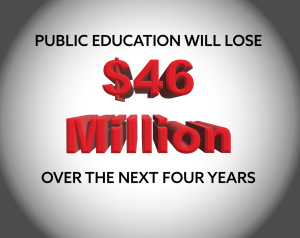
The loss of enrollment will lower public schools’ funding. A recent analysis by the LSA determined that despite the money the bill will bring schools, Iowa public education will suffer a net loss of $46 million.
The potential money a public school will receive is what Republicans in favor of the bill tend to emphasize, ignoring the drop in enrollment and an overall drop in funds the new legislation will cause. Parents are being misled as to the effects this bill will have on public schools.
Republicans are promoting the bill as if it will give parents a choice that they did not have before.
“Students in Iowa already have a choice,” Donahue said. “Parents in Iowa—particularly in our area—have a lot of different ways they can educate their children. We have private parochial schools, regular private schools, charter schools, magnet schools. The only ones who benefit from this bill are wealthy Iowans, who already can and are affording the private tuition and the private institutions themselves, because they are allowed to profit off of tax dollars.”
Students unable to attend private schools due to financial reasons will still not be able, whether they lack transportation for their children or the sum provided is still not enough to afford them the ability to pay for private schooling.
The $7,000 provided is around two-thirds of the cost to enroll in a school like Cedar Rapids Xavier, which costs over $11,000. Families who cannot afford to enroll in private schools now will still not be able to cough up an extra $4,000. The money provided will not be enough to send children from an average household to private schools, giving a “choice” only to those who already had one.
The concept of a “School Choice Act” in Iowa has been circulating through Iowa for years. However, it hasn’t been passed until recently due to branches of the government that have become majority Republican, allowing the party to circumvent the rules of the U.S. Government.
“The Republican party has the trifecta, they have the majority in the House, the Senate, plus the Governor’s Office,” Donahue said. “Yet in the House, they are suspending all of the rules to bypass the Appropriations Committee [and] the Ways and Means Committee. This is important because historically the Appropriations Committee determines the costs of a program. They have bypassed these rules because they would not be able to pass the bill (even with the majority) without bypassing those two committees. That tells you how poor of an idea this bill is.”
Despite Republicans controlling large parts of the government, the bill would not have passed without bypassing essential committees as many of them are able to recognize the catastrophic effects the new legislation will have. This means the opinions in the bill are that of the most right-wing members of our government.
Nine Republican representatives and three Republican senators voted against the bill along with the entirety of Democratic representatives and senators. The votes were 55-45 in the House and 31-18 in the Senate.
The impact these policies will have on future generations is apparent to public educators. Those spearheading the legislation do not care to consider the opinions and knowledge of the ones managing the fallout.
“If you have excellent schooling, you have excellent workers,” Donahue said. “If you have excellent schooling, businesses with good jobs, good pay and benefits want to be in your state to hire those good workers. If you have good childcare and accessible childcare, you have more people able to go to work-so more businesses come. If you have affordable housing people can afford to live in the state bringing more to our economy.”
The School Choice Act will not provide excellent schooling. It widens the wage gap, dooming children in poverty to the life they were born into. Students who cannot attend private schools will suffer in crumbling facilities as funding continues to drop. Within the next ten years, we will have destroyed the public education system in Iowa.
“All Iowans who care about this legislation should reach out to their state representative and state senator,” Wahls said. “I would also urge them to contact their local school board.”
We can stop the decline of public education if we take action. Reach out to those with influence, attend the board meetings in your community and make a difference. It’s now up to us.


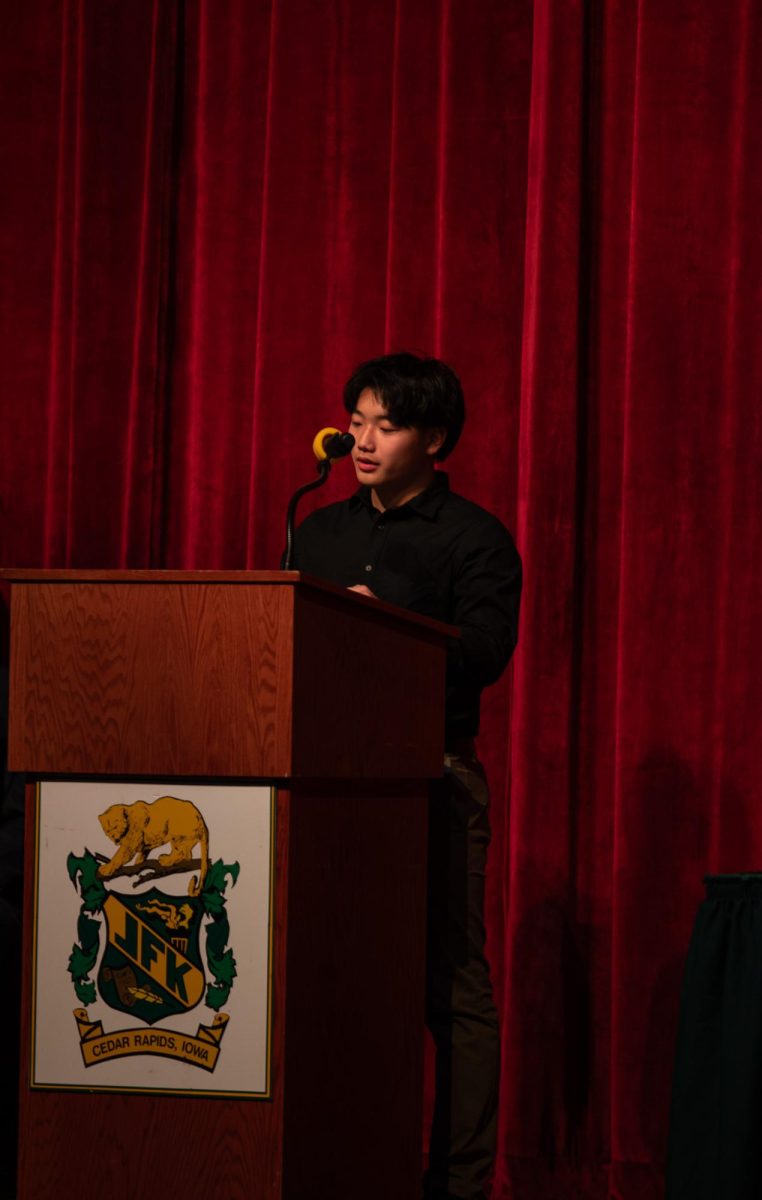
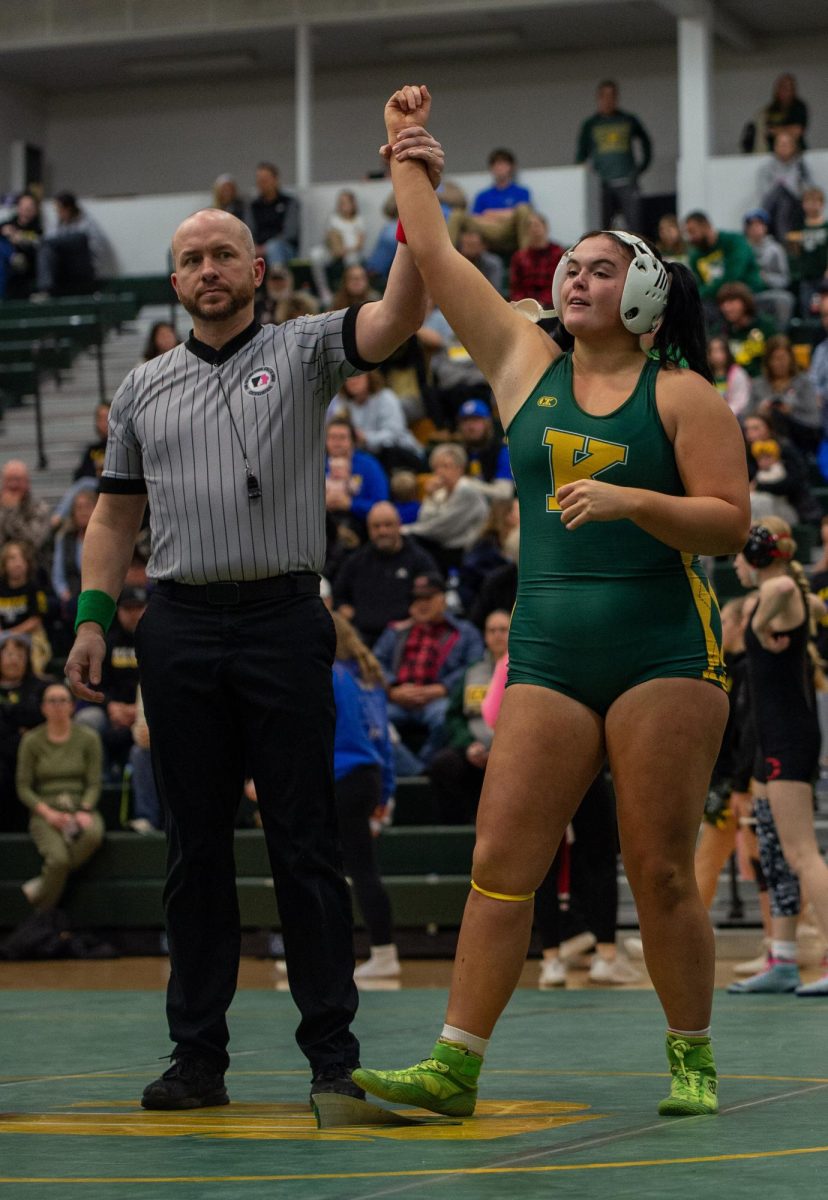















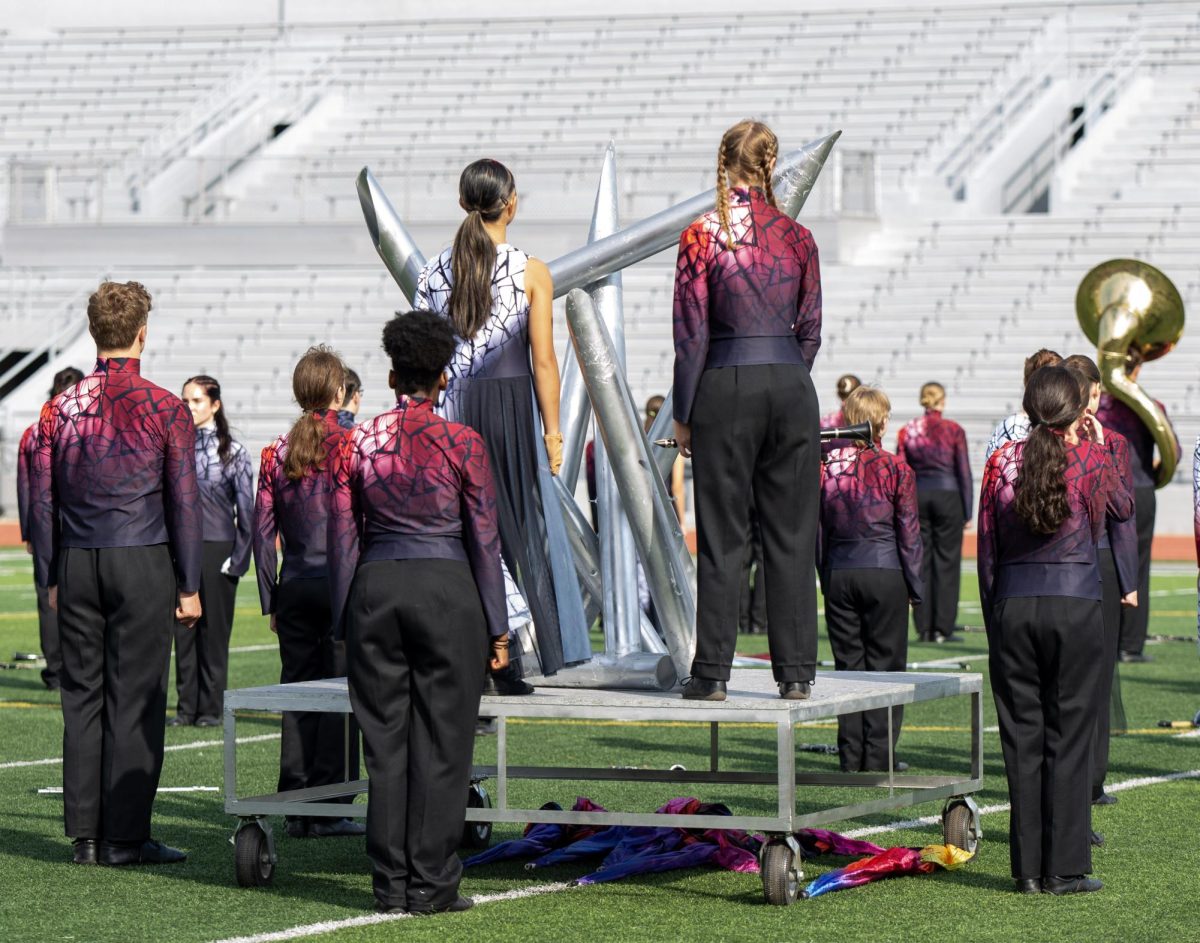





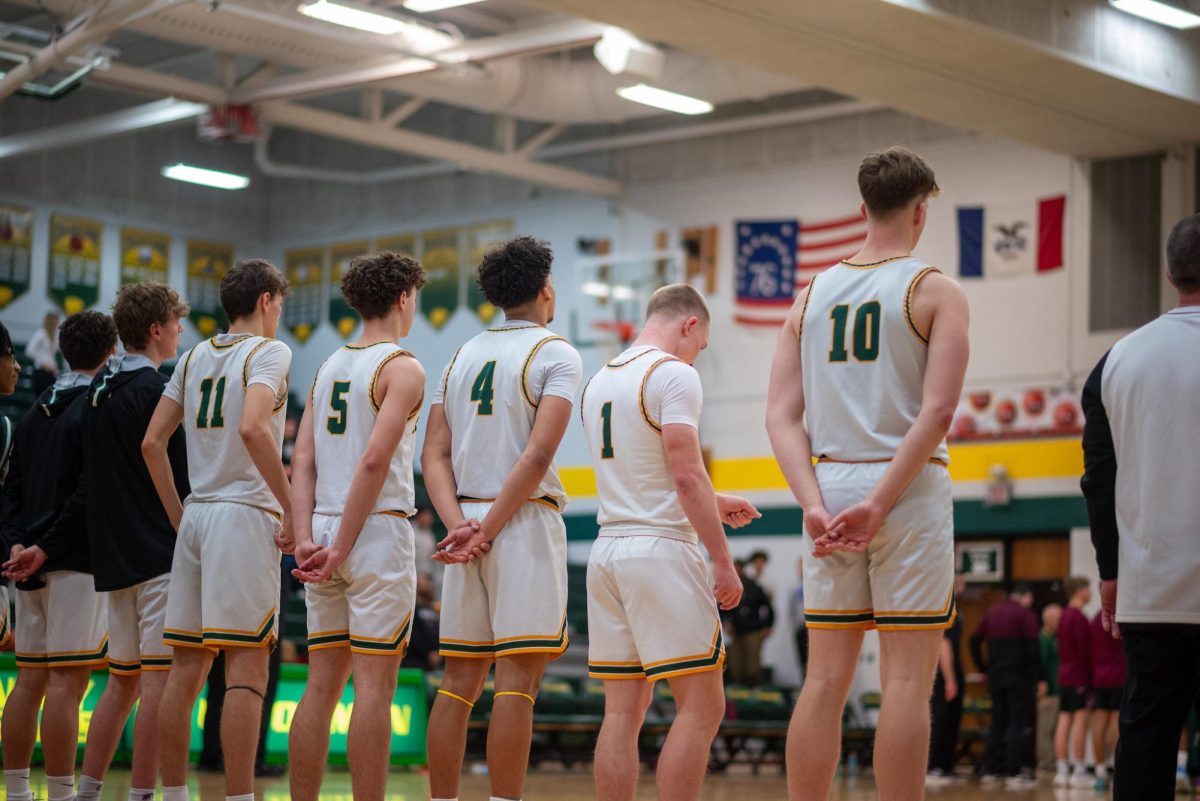

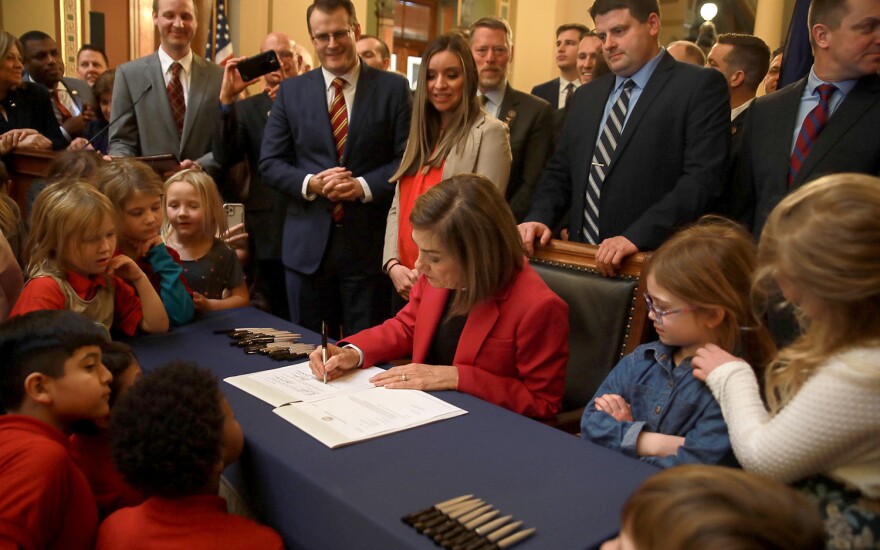

Carol • Mar 2, 2023 at 5:49 pm
Very well written! Easy to follow and understand.
Eric • Jan 28, 2023 at 12:29 am
This was a very well written article. Congratulations you should be proud of yourself and the points you bring up. I am opposed to this legislation or any similar. We live in Williamsburg and after 8th grade the children on this town only have public school to attend. The Lutheran School is the only private school which only goes through eighth grade. After that all students and families closest private school for 9th-12th would be in Cedar Rapids or Iowa City. That is way too far away from Williamsburg. Not to many parents have the gas money or time if both parents work to drive that far twice a day. Roughly 100 miles total with two rounds trips per day. Or if the student is old enough to drive themselves, we are adding many miles per day to responsibility of new and inexperienced drivers. These are just some of the day to day issues if families from our town wanted a voucher. I and sure other towns in our state are much more rural and even further from a private school.. Another thing is can this state really afford this program financially. I do have numbers of our actual surplus, but as a tax payer I am uncomfortable funding such an expensive misuse of our state budget. Then you add in that it drains over $40 million from already strapped public schools, it sounds like a terrible idea. I think this just opens us up to future funneling of money from public to private schools for something only a small percentage of students and families will be able to benefit from. Again such a wonderful written article if you choose to pursue Journalism it looks like you have a bright future in that field.
Tracy Bowers • Jan 25, 2023 at 8:26 pm
This is exceptionally well done!